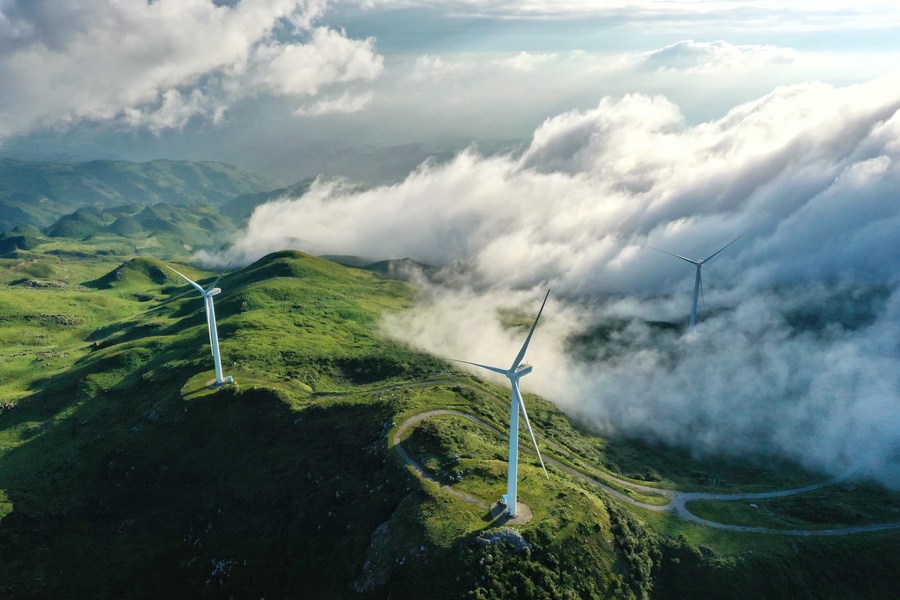
Aerial photo taken on Aug. 8, 2020 shows the sunrise of Jianghang Village of Zhangpu Town, in Kunshan City, east China's Jiangsu Province. (Xinhua/Yang Lei)
"One must understand, reducing carbon emissions is in world's costs. It's not a free lunch. It requires sacrifices. So changes are not easy to do," said Sourabh Gupta, a senior fellow at the Washington-based Institute for China-America Studies.
WASHINGTON, March 11 (Xinhua) -- There is a "huge scope" for economic cooperation, commercial and technologies exchanges between the United States and China in addressing global climate change, a renowned U.S. scholar has said.
It is "tremendously important" for the world that the United States and China, currently two major emitters, to work together "in not just trying to mitigate carbon emissions, but completely transform the economic structure of the way we live," Sourabh Gupta, a senior fellow at the Washington-based Institute for China-America Studies, told Xinhua recently.

People tour the National Mall in Washington D.C., the United States, Feb. 27, 2021. (Photo by Ting Shen/Xinhua)
Gupta expressed his appreciation that China's top legislature is deliberating the country's 14th Five-Year Plan which also set out a de-carbonization blueprint, peaking its carbon emissions by 2030 and achieving carbon-neutrality by 2060.
He noted that under the administration of Joe Biden, the United States has rejoined the Paris Agreement on climate change and put tackling climate crisis one of its top priorities.
"I think the two sides have very well teed up to seek out these opportunities and to make immense commercial and political gains from the process," he said.

Aerial photo taken on Aug. 19, 2020 shows wind turbines in Jiucaiping scenic spot in southwest China's Guizhou Province. (Xinhua/Liu Xu)
"Considering that China has already gone down that line, I think there is a huge scope for economic cooperation and commercial exchange in these sectors between the United States and China," he added.
Beyond that, the two sides can set "a completely new paradigm of how carbon trading (works) and how carbon intensive goods are traded across borders," the expert suggested.
Gupta emphasized that climate change, like the COVID-19 pandemic, "requires everybody to be on the same page."
"These are threats which one country cannot face. One continent even cannot face by itself, and it's required kind of all parties, stakeholders to come together to find solutions," Gupta said.

People walk along the waterfront in Brooklyn Bridge Park in the Brooklyn borough of New York, United States, March 8, 2021. (Xinhua/Michael Nagle)
"One must understand, reducing carbon emissions is in world's costs. It's not a free lunch. It requires sacrifices. So changes are not easy to do," he said. "Behavioral changes of the magnitude required to reduce carbon emissions are going to be very difficult."
Being environmentally conscious brings about "immense business, commercial opportunities," he said, citing the emerging market of new energy vehicles in China.
"This (Biden) administration in particular is looking at carbon remediation and reductions as a business opportunity (of) how to change the entire structure of the economy at a time when there's a lot of public investment required to dovetail green growth and public growth, public investment growth simultaneously," said Gupta.




 A single purchase
A single purchase









